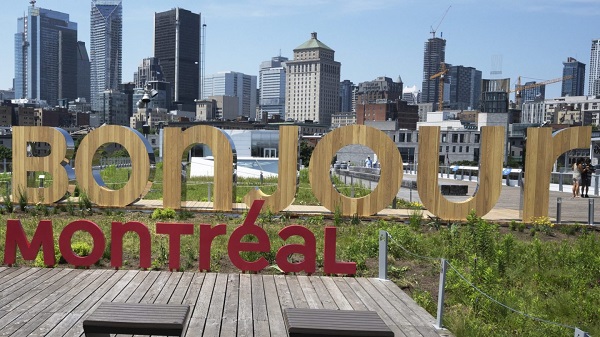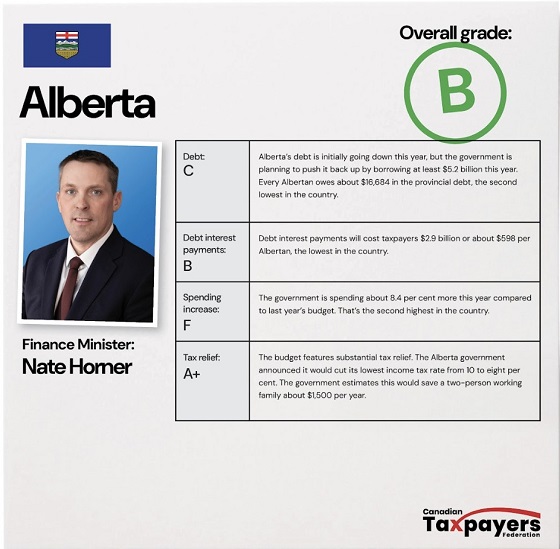Energy
Quebecers starting to understand the need for Canadian pipelines

From the Canadian Energy Centre
Q&A with Gabriel Giguère, senior policy analyst with the Montreal Economic Institute
A new poll from Angus Reid shows significant support from people in Quebec for Canada to build sea-to-sea oil and gas pipelines.
Gabriel Giguère, a senior policy analyst with the Montreal Economic Institute, says it’s support like he has never seen before.
Here’s what he had to say.
CEC: Where does Quebec get its energy from?
Giguère: Quebec’s electricity comes from local hydroelectric power, while oil and gas primarily come from Canada and the United States. This is a major shift from 2005, when oil was sourced from Algeria, the UK, Norway, Mexico and Venezuela and only a small amount from Canada. Today, it’s almost entirely from Canada and the United States.
CEC: How would an oil pipeline from Alberta benefit the people of Quebec?
Giguère: It’s clear it will help Canadians diversify their trading partners. A pipeline will also create jobs, benefiting Quebec workers.
Quebec is a part of Canada, and unity is essential. The good news is we all seem to agree on that. According to the latest poll from Angus Reid, it’s unanimous. There is broad support for new pipelines to expand our trade relationships.
The United States has been a strong trading partner, but there is ongoing uncertainty that has made diversification essential. We all know that investors don’t like uncertainty. To achieve certainty, we need the right infrastructure to be able to diversify.
In Quebec, twice as many people support a new pipeline than oppose it. I don’t remember having data like that before.
This is a clear and significant shift, especially for the oil and gas sector, which is one of Canada’s most vital economic sectors. This is very good news.
CEC: What has changed that is making Quebecers more supportive of a project like this?
Giguère: I believe the tariff threat was the spark. People are now starting to understand that our trade relationship with the United States isn’t what it once was. It’s as simple as that.
We need to diversify our trading partners. The million-dollar question is: how? I don’t think It’s possible without a pipeline. I believe Quebecers are starting to understand that.
There is the pipeline, but I strongly believe that GNL Quebec [proposed LNG project in the Saguenay Region to transport Alberta natural gas to Europe] could have even stronger public support, as it offers a direct way to diversify our trading partners. This wouldn’t only benefit our European allies but would open doors to other countries also.
CEC: What do you see happening next?
Giguère: It will depend on political leadership in Quebec. When we are talking about pipelines here, the discussion always circles back to Energy East, which was scrapped because there was “no social acceptability.” Nobody can say that today.
It’s not possible to tell me there’s no social acceptability when you have twice as many people who want a pipeline than those who don’t. There is clearly social acceptability.
The real issue is heavy regulation, such as the Impact Assessment Act. To be clear, I’m not saying we should not have any environmental impact assessment, but we need to make sure that the current regulatory framework allows the construction of big energy infrastructure projects.
Political leaders need to recognize that diversifying our trading partners is their responsibility and requires facilitating the projects to make that possible.
Business
Carney’s Honeymoon Phase Enters a ‘Make-or-Break’ Week

From the National Citizens Coalition
The National Citizens Coalition (NCC) is sounding the alarm on a critical week for the Carney government, which, despite enjoying an unearned honeymoon in the polls, has delivered zero results for everyday Canadians. As the G7 summit looms large and the House of Commons prepares to adjourn, this is a make-or-break moment for Prime Minister Mark Carney to prove his government is more than empty promises. Canadians are watching, and the NCC is calling out the glaring failures that threaten a grim summer of economic decline, and continued crime, chaos, and rising unemployment.
Housing Minister Gregor Robertson Caught in $10.85 Million Scandal
Recent revelations from Blacklock’s Reporter expose Housing Minister Gregor Robertson’s attempt to conceal $10.85 million in personal property investments during Commons questioning. This shocking lack of transparency from the minister tasked with addressing Canada’s housing crisis raises serious questions about his integrity and ability to prioritize Canadians struggling with skyrocketing costs. While Robertson dodges accountability, and Carney apparently scoffs at providing housing relief to millions suffering under a Liberal-made crisis, young professionals and young families are wondering if they’ll ever have a chance to own a home bigger than Canada’s much-maligned supply of ‘dog-crate condos.’
The NCC demands a full ethics investigation, the resignation of Gregor Robertson — who, as one of the architects of the Vancouver housing crisis, should have never been handed this file to begin with — and immediate action to restore trust in this critical portfolio.
Pipeline Delays and Provincial Obstruction Threaten Economic Growth
The Carney government’s inaction on pipelines is stalling Canada’s economic potential. Despite promises of “nation-building projects,” British Columbia and Quebec continue to block and veto critical energy infrastructure, with Carney failing to assert federal leadership. His vague talk of “consensus” and “decarbonized” barrels has led to zero progress, leaving Alberta’s economy in limbo and Canadians facing higher energy costs. With no clear plan to advance projects, the government is squandering opportunities to create jobs and secure energy sovereignty. The NCC urges Carney to act decisively this week to break the provincial logjam and deliver results.
Immigration Chaos: Lena Diab’s Unchecked Honour System Fails Canadians
Immigration Minister Lena Diab’s reliance on an ‘honour system’ for millions of temporary visitors with expiring visas is a recipe for disaster. As Canada grapples with unsustainable immigration levels, Diab’s apparent plan for millions of temporary workers and failed ‘diploma mill’ attendees assumes compliance without enforcement, ignoring the high-propensity for fraud, and the ongoing and urgent strain on housing, healthcare, and public services. The Liberals’ Strong Borders Act promises reform, but its loaded with unnecessary overreach and vague measures.
A lack of urgency leaves Canadians vulnerable to further crime, chaos, closed emergency rooms, high rents, and failing infrastructure. With immigration continuing to spiral out of control, the NCC calls for concrete action to drastically lower immigration targets, expedite deportations, and prioritize Canadian citizens and the record amounts of unemployed before the House adjourns.
Canadians Deserve Results, Not More Hollow “Elbows up” or “Team Canada” Rhetoric
This week’s G7 summit in Alberta and the impending House adjournment are the Carney government’s last chance to show leadership, before an undeserved summer break for a government that will be overseeing deepening economic decline, rising crime under a refusal to tackle catch-and-release bail, and growing unemployment. Canadians cannot afford another season of unfulfilled promises and unchecked crises. The NCC demands Carney use the G7 platform to secure trade stability, meaningful energy deals with our allies, and table a federal budget to address the cost-of-living crisis made worse by inflationary Liberal spending. Failure to act now will cement an early legacy of inaction and leave Canadians to endure a prolonged period of hardship.
“The Carney government’s honeymoon has been built on hype, not results,” says NCC Director Alexander Brown. “From Gregor Robertson’s hidden millions, to stalled pipelines, to an immigration system in continued disarray, Canadians — and particularly young Canadians — are being let down. This week is Carney’s chance to prove he can deliver beyond the lies that were told to placate a portion of the electorate at the polls. If he fails to act, the economic decline, the crime and chaos, will only worsen, and everyday Canadians will pay the price.
“True Canadian leaders like Alberta Premier Danielle Smith are in attendance at the G7 along with Carney. If actual acts of ‘nation-building,’ and not more net-zero de-growth, do not come naturally to the PM, he should turn to those who have never wavered in their quest to make life more affordable for the hard-working citizens they are privileged to represent, and who know when to get out of the way to allow Canadians to prosper. More of the same internal, ideological sabotage from the Liberals cannot ruin this dire moment for Canada’s rebirth and recovery.”
The NCC calls on all Canadians to hold the Carney government accountable. Join us in demanding transparency, action, and results before the House adjourns and the G7 summit concludes. Together, we can fight for a stronger, more prosperous Canada.
About the National Citizens Coalition: Founded in 1967, the NCC is a non-profit organization dedicated to advocating for individual freedom, lower taxes, less government waste, and a stronger Canada. We hold governments accountable and fight for the interests of everyday Canadians.
Energy
Could the G7 Summit in Alberta be a historic moment for Canadian energy?

From Resource Works
Canada can be the democratic world’s top energy supplier, and the G7 Summit in Alberta is the perfect time to commit to that.
Canada is at the crossroads of opportunity as the leaders of the G7 convene in Kananaskis, Alberta.
An Ipsos poll has named Canada the top preferred oil supplier among G7 countries for the second time since 2023. No less than 68 percent of G7 respondents declared that Canada was among their top three choices to supply oil.
This should be yet another motivator for Canada to solidify itself as a key player in energy security and economic stability among the democratic nations.
The timing and location of this year’s G7 summit shows how important Canada can be to the world. Alberta, Canada’s energy heartland, is the source of nearly all of the country’s oil, and the provincial government wants more of it to reach global markets.
Those geopolitical anxieties caused by Russia’s invasion of Ukraine in 2022 have not disappeared, and Canada’s allies and partners like the European Union (EU), Japan, South Korea, and India are looking for a reliable and responsible partner to supply them with energy, and we are the best and most obvious choice.
Willing partners are easy to find overseas, but the other provinces and the federal government need to become equally enthusiastic first.
There is more to this than mere symbolism. Canada embracing its position as the most desirable supplier of oil makes complete sense.
In 2023, Ipsos found that Canada’s political stability, comprehensive environmental rules, and strong regulatory frameworks are why it ranked first among preferred oil suppliers. Norway is another popular option, but Canada has the advantage of better market access to the United States and the Asia-Pacific, along with established infrastructure and an open government.
It all combines to create a distinct advantage for Canada in the world of trade.
The US has slid as a popular oil supplier, to Canada’s advantage, and we need to capitalize on that more than ever.
As Russia’s bloody, disruptive war with Ukraine continues to drag on, the EU still needs sources of alternative energy to make a clean break with Moscow. Russia had previously served as the bloc’s effective gas station, albeit one armed with nuclear weapons.
G7 member states like Britain and the EU are looking to slap even stricter limits on Russian energy exports that go beyond what is already in place. Whatever Russia has to lose is Canada’s to gain.
Canada began to enlarge its export capacity last year with the completion of the twinning of Trans Mountain pipeline (TMX), enabling Canada to double the amount of oil it can pipe to Pacific markets. Shipping larger amounts of Canadian energy to partners in Japan, India, South Korea, and others has never been easier.
It was a monumental example of how investing in the right sorts of infrastructure can improve economic security, both nationally and internationally. Internally, developing the oil industry is a long term goal of First Nations leaders and communities.
The myth of First Nations opposing the expansion of oil and gas is one that needs to die. The Indian Resource Council, which represents over 130 First Nations, has repeatedly championed the responsible development of natural resources as a means of fostering economic independence and community renewal.
Many First Nations and other Indigenous groups have invested heavily into pipelines, production sites and storage facilities, and want to expand it further. In terms of pure economic value, there is not another industry that has created more wealth in Indigenous communities across Western Canada.
Complacency from the federal government and other authorities at this time could not be timed more poorly as the G7 Summit comes to Alberta. When the gathering ends on June 17, we should hope that it was a turning point where Canada made a direct and clear commitment to modernizing and expanding its oil and gas sector.
Our role in the world can be that of the great democratic alternative to Russia when it comes to supplying energy and other resources. Alberta knows it, as do our allies and Indigenous people across Canada.
Ottawa should listen. It is time to realize our potential to be an even greater energy superpower.
Through that, we can reduce the power of authoritarian, hostile regimes in the world by building a stronger, more unified Canada.
-

 Health7 hours ago
Health7 hours agoLast day and last chance to win this dream home! Support the 2025 Red Deer Hospital Lottery before midnight!
-

 Crime2 days ago
Crime2 days agoManhunt on for suspect in shooting deaths of Minnesota House speaker, husband
-

 Business1 day ago
Business1 day agoCarney’s European pivot could quietly reshape Canada’s sovereignty
-

 Aristotle Foundation10 hours ago
Aristotle Foundation10 hours agoThe Canadian Medical Association’s inexplicable stance on pediatric gender medicine
-

 Alberta1 day ago
Alberta1 day agoAlberta’s grand bargain with Canada includes a new pipeline to Prince Rupert
-

 conflict14 hours ago
conflict14 hours ago“Evacuate”: Netanyahu Warns Tehran as Israel Expands Strikes on Iran’s Military Command
-

 Bruce Dowbiggin13 hours ago
Bruce Dowbiggin13 hours agoWOKE NBA Stars Seems Natural For CDN Advertisers. Why Won’t They Bite?
-

 Energy13 hours ago
Energy13 hours agoCould the G7 Summit in Alberta be a historic moment for Canadian energy?







